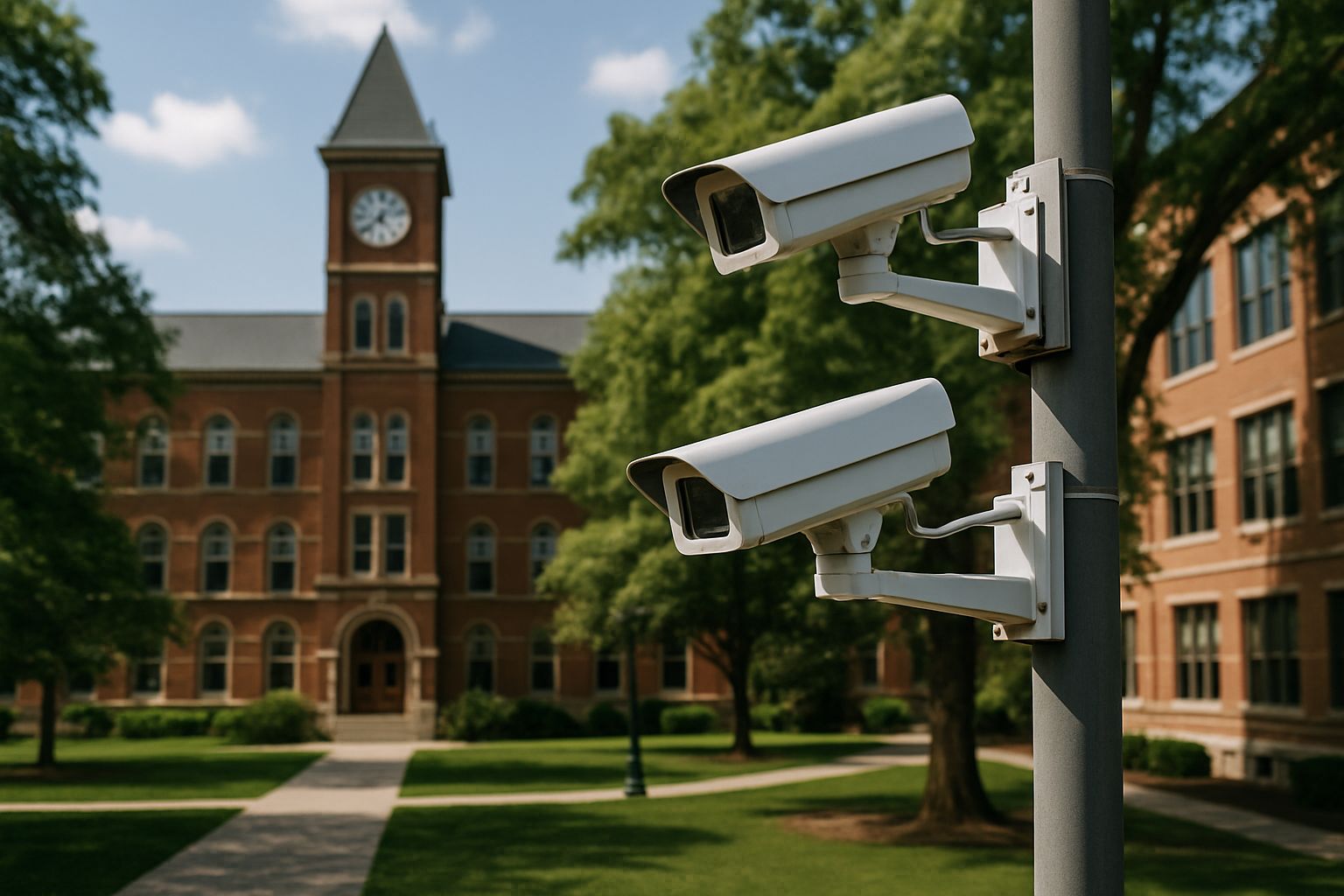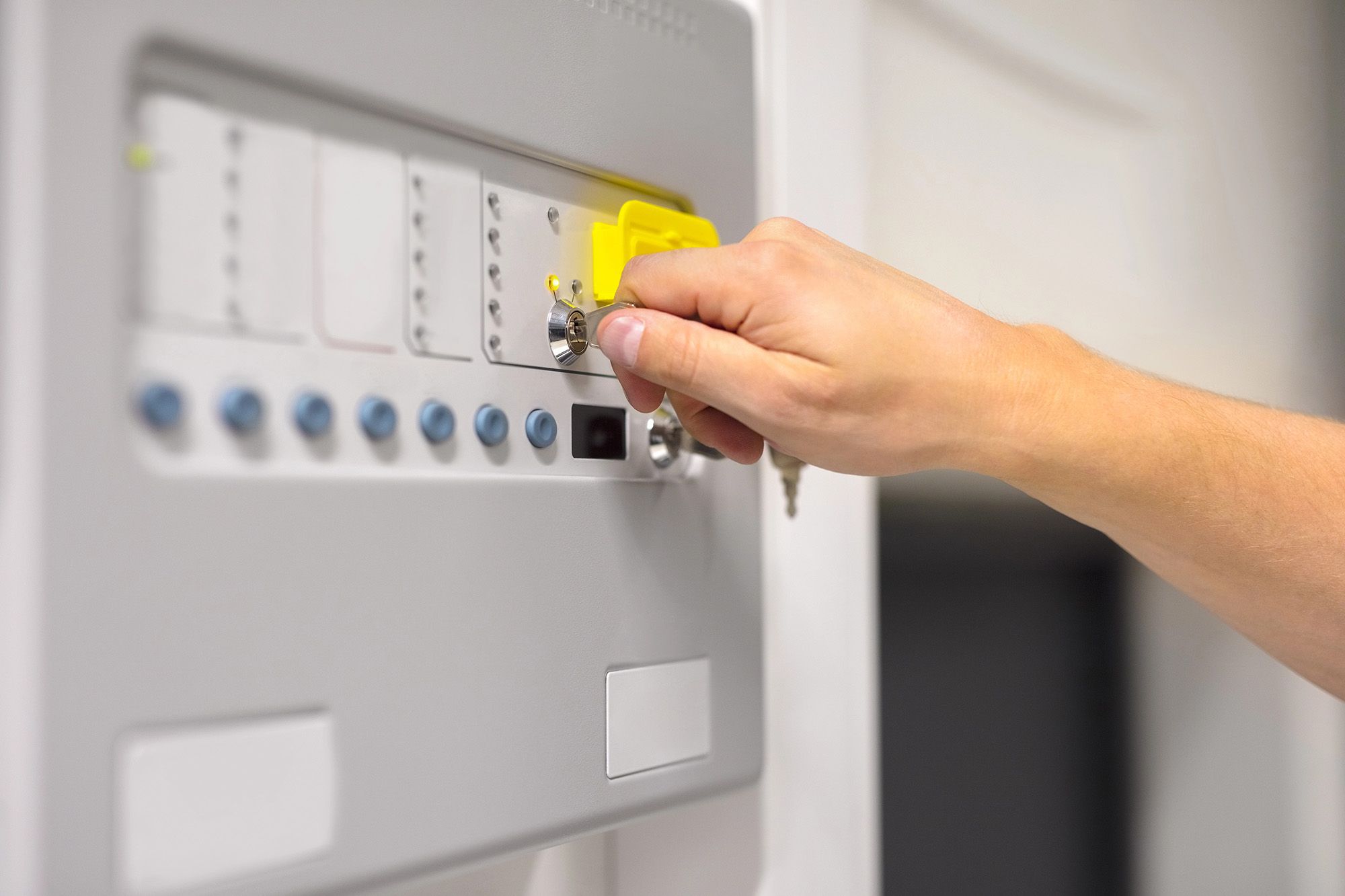Key Takeaways
- Mobile patrol services offer up to 30% cost savings compared to static guards while providing wider coverage across multiple locations
- Unpredictable patrol patterns create a stronger deterrent effect than fixed security posts, significantly reducing break-in attempts
- Mobile patrol officers undergo specialized training in rapid response, surveillance techniques, and emergency management
- Businesses with multiple locations, large premises, or minimal overnight staff benefit most from mobile patrol services
- New England Security’s mobile patrol services include comprehensive security checks and real-time reporting to enhance overall protection
Protecting your business doesn’t have to mean compromising your budget. Mobile patrol security services represent one of the most versatile and cost-effective approaches to commercial protection available today.

Why Mobile Patrol Security Is Your Best Safety Investment
Mobile vs. Static Security: Cost-Benefit Analysis Average hourly cost of static guard: $25-35 per hour (24/7 coverage = $18,000+ monthly) Average mobile patrol service: $45-65 per visit (3-4 visits daily = $4,500-6,000 monthly) Coverage comparison: 1 static guard covers 1 location vs. 1 mobile patrol officer covers 6-8 locations Return on security investment: Mobile patrols provide 30% better incident prevention at approximately 1/3 the costThe security landscape has evolved dramatically in recent years, with businesses facing increasingly sophisticated threats. When evaluating security options, the flexibility of mobile patrol services often provides superior protection compared to traditional static guards. At New England Security, we’ve seen firsthand how mobile patrols can transform vulnerability into vigilance through strategic deployment and cutting-edge monitoring. Businesses across sectors are discovering that visibility, unpredictability, and rapid response capabilities make mobile security patrols uniquely effective at deterring criminal activity before it begins. The psychological impact of a marked security vehicle making regular but random appearances creates a powerful deterrent that static guards simply cannot match.
What Makes Mobile Patrols Different From Static Guards
Mobile security patrols operate fundamentally differently than static guards. Rather than remaining fixed at a single checkpoint, mobile patrol officers circulate through multiple locations in specially marked vehicles. This mobility allows them to cover significantly more ground while creating an unpredictable security presence that potential intruders cannot easily plan around. The element of surprise becomes your strongest asset, as criminals typically avoid targets where security patterns are difficult to predict.The Cost Advantage: Getting More Security Coverage For Less
Perhaps the most compelling reason businesses choose mobile patrols is the dramatic cost difference compared to staffing static security positions. A single static guard can only monitor one location at a time, requiring multiple guards for comprehensive coverage. In contrast, one mobile patrol officer can effectively monitor 6-8 locations during a shift, distributing the cost across multiple protection points. This efficiency translates to approximately 30% cost savings while maintaining—and often improving—security effectiveness through strategic mobility. Mobile patrol services also eliminate the overhead expenses associated with maintaining full-time security personnel. You’ll avoid costs related to employee benefits, training, uniforms, equipment, and coverage during sick days or vacations. Instead, you pay only for actual patrol time, with frequencies customized to your specific security needs and budget constraints.5 Major Benefits of Mobile Patrol Services for Business Protection
Beyond cost savings, mobile patrol services deliver multiple strategic advantages that enhance your overall security posture. These benefits combine to create a security solution that adapts to your specific needs while maximizing protection value. Let’s explore the five most significant advantages that make mobile patrols an essential component of modern business security strategies.1. Wider Coverage Area and Multiple Location Monitoring
Mobile patrol services excel at covering expansive areas that would otherwise require multiple static guards. A single patrol unit can effectively monitor several buildings, parking lots, and perimeter zones during one shift. This expansive reach means that even large industrial complexes or sprawling retail centers can maintain comprehensive security coverage without deploying guards at every vulnerable point. For more insights, check out our top 10 recommendations from physical security assessments. Strategic route planning ensures that patrol officers visit high-risk areas more frequently while maintaining coverage of the entire property. This optimization balances security resources where they’re most needed while ensuring no area remains completely unmonitored for extended periods.2. Unpredictable Patrol Patterns That Deter Criminals
One of the most powerful security advantages of mobile patrols is their unpredictability. While static guards create a known security presence that determined criminals can observe and work around, mobile patrols follow randomized schedules and routes that prevent pattern recognition. This unpredictability creates significant psychological deterrence, as potential intruders cannot confidently determine when a patrol will appear. Security studies consistently show that unpredictable security measures produce stronger deterrent effects than fixed security. Mobile patrol officers strategically vary their timing, approach routes, and inspection points to maximize this unpredictability. Many security directors report substantial decreases in trespassing and break-in attempts after implementing randomized mobile patrol schedules.3. Rapid Emergency Response Capabilities
When emergencies occur, mobile patrol officers can typically respond far more quickly than dispatching static guards from distant posts or waiting for law enforcement arrival. Patrol vehicles are equipped with emergency equipment and communications systems that enable immediate response to alarms, suspicious activities, or safety incidents. This rapid response capability often means the difference between catching perpetrators in the act versus discovering damage after the fact. Mobile patrol officers are specifically trained in emergency protocols and crisis management, allowing them to make sound decisions under pressure. Their ability to quickly secure crime scenes, administer first aid, and coordinate with emergency services provides an invaluable first response layer when minutes matter.4. Comprehensive Security Checks Beyond Guard Posts
Unlike static security limited to observing from fixed positions, mobile patrol officers conduct thorough physical inspections of premises during each visit. These comprehensive checks include testing door locks, examining windows for tampering, inspecting utility areas, and identifying potential security vulnerabilities like broken fencing or disabled lights. This proactive approach identifies issues before they become serious security breaches. Each inspection generates detailed documentation with time-stamped verification of security conditions across your property. These records provide valuable documentation for insurance purposes and help security managers identify patterns or recurring issues that require attention. For more insights, consider reviewing top recommendations from physical security assessments.5. Reduced Security Vulnerabilities Through Regular Inspections
Regular security assessments by mobile patrol officers help identify and address vulnerabilities before they can be exploited. Professional security officers are trained to spot subtle signs of attempted access, tampering, or surveillance that might go unnoticed by untrained observers. By catching these early warning indicators, businesses can implement countermeasures before actual breaches occur. These ongoing assessments also help businesses adapt their security protocols as threats evolve. Mobile patrol reports often reveal emerging security trends or changing risk patterns that inform strategic security planning. This dynamic intelligence allows for continuous improvement of security measures rather than static approaches that may become outdated.How Mobile Patrols Actually Work To Protect Your Business
The effectiveness of mobile patrol services stems from their operational methodology. When you engage a professional security provider, patrol officers follow established protocols customized to your specific security requirements. Typically, the process begins with a comprehensive security assessment to identify vulnerable areas, establish optimal patrol frequencies, and determine specific checkpoints requiring attention. During each patrol visit, officers systematically inspect predetermined checkpoints while remaining alert for unusual activities or security anomalies. Modern patrol operations leverage technology to enhance effectiveness, with officers documenting their observations through digital reporting systems that provide clients with real-time updates and comprehensive security logs.Technology Integration: GPS Tracking and Real-Time Reporting
Today’s mobile patrol services employ sophisticated technology that transforms traditional security rounds into data-driven protection systems. GPS tracking allows security managers to verify patrol routes and timing, ensuring comprehensive coverage while maintaining accountability. Real-time reporting applications enable officers to document incidents, complete checkpoint verifications, and share photographic evidence instantly with both security supervisors and clients. Many leading security providers now offer client portals where businesses can access patrol reports, track service delivery, and review security recommendations. This transparency creates collaborative security relationships where protection strategies continuously improve based on actual field observations and evolving business needs.Security Officer Training and Qualifications
Professional mobile patrol officers undergo specialized training beyond basic security certification. This comprehensive preparation includes advanced driving techniques, surveillance methods, report writing, emergency response protocols, and conflict de-escalation. The best security firms ensure their patrol staff receive continuous education to stay current with evolving security threats and countermeasures. When evaluating patrol services, inquire about the specific training credentials of the officers who will be protecting your property. Quality providers invest heavily in developing their personnel through both classroom instruction and field mentoring. The difference between a minimally qualified security officer and a thoroughly trained professional becomes immediately apparent during critical incidents.When Mobile Patrol Services Make The Most Sense
While mobile patrols offer numerous advantages, they’re particularly well-suited for specific business situations. Understanding where these services deliver maximum value helps you determine if they align with your security needs. In many cases, the strategic deployment of mobile patrols in combination with other security measures creates the optimal protection profile.Large Premises With Multiple Entry Points
Properties with extensive perimeters or numerous access points present unique security challenges that mobile patrols address exceptionally well. Industrial complexes, manufacturing facilities, construction sites, and warehouse districts typically contain too many vulnerable areas for static guards to effectively monitor. Mobile patrol units can systematically cover these expansive properties, checking numerous entry points, storage areas, and equipment zones during each visit. The patrol vehicle itself serves as a mobile security station, equipped with spotlights, communications equipment, and emergency response tools that enable officers to effectively manage large-scale properties. This comprehensive coverage ensures that even remote areas of your property receive regular security attention without requiring multiple fixed posts.Properties With Minimal Overnight Staff
Businesses that operate with reduced personnel during evening hours or weekends face heightened vulnerability precisely when fewer witnesses are present. Retail centers, office buildings, and medical facilities often maintain minimal staffing during off-hours while containing valuable assets. Mobile patrols provide critical security presence during these vulnerable periods without requiring full-time security staffing. The psychological security benefit extends to your overnight employees as well. Staff working isolated shifts report significantly higher comfort levels knowing that security professionals will be making regular appearances throughout their shift. Many businesses implement escort services as part of their patrol packages, allowing late-night workers to request security accompaniment to parking areas.Businesses With Multiple Locations
Companies operating several facilities within a geographic area gain exceptional value from mobile patrol services. Rather than staffing each location with dedicated security personnel, a single patrol route can incorporate all properties into a comprehensive protection plan. This consolidated approach provides professional security coverage at a fraction of the cost of deploying static guards at each site. Regional businesses like restaurant chains, retail stores, or service centers particularly benefit from this multi-location capability. The patrol service creates a unified security approach across all facilities while allowing for customized attention to location-specific concerns. Security management becomes streamlined through standardized reporting and consistent protocols across your entire operation.Limitations of Mobile Patrol Services You Should Know
While mobile patrol services offer substantial benefits, responsible security planning requires understanding their limitations. Acknowledging these constraints helps businesses develop realistic expectations and implement complementary measures where necessary. A transparent assessment of both strengths and limitations leads to more effective overall security strategies.Response Time Considerations
By definition, mobile patrols cannot provide instant response to every security incident. The time between patrol visits creates windows where immediate security response isn’t available unless supplemented by other measures. While patrol frequencies can be increased in high-risk situations, budget constraints typically prevent continuous coverage. For more insights on improving security strategies, check out our top 10 recommendations from physical security assessments. This response gap necessitates thoughtful integration with alarm systems, remote video monitoring, or other technologies that provide continuous surveillance between patrol visits. Many businesses implement a layered security approach where technology monitors continuously while mobile patrols provide physical response capabilities.Non-Continuous Presence
Unlike static guards who maintain constant presence, mobile patrols provide intermittent security visibility. This limitation becomes significant for businesses requiring continuous access control or constant customer-facing security presence. High-traffic retail environments, healthcare facilities, or venues managing valuable public access may require supplemental security approaches beyond patrol services alone. For more insights on enhancing security in retail environments, explore our article on adapting your loss prevention services. Understanding this fundamental difference helps businesses determine whether mobile patrols should serve as their primary security measure or as one component within a broader protection strategy. Many organizations effectively combine limited static posts at critical access points with mobile patrols covering wider areas.Creating A Balanced Security Approach
The most effective security strategies leverage mobile patrols as part of an integrated protection system rather than as a standalone solution. This balanced approach maximizes coverage while minimizing costs through strategic resource allocation. By combining the flexibility of mobile patrols with complementary security elements, businesses create robust protection that addresses multiple vulnerability types.Combining Mobile Patrols With Other Security Measures
A strategically balanced security plan might include mobile patrols handling perimeter checks and responding to after-hours alarms, while access control systems manage entry points and CCTV cameras provide continuous monitoring of critical areas. This integration creates multiple security layers that compensate for the limitations of any single approach while maximizing overall protection value. The specific combination depends on your unique risk profile, budget constraints, and operational requirements. Security professionals can help assess your specific needs and design a customized protection plan that optimally balances various security elements. The goal is creating comprehensive coverage without unnecessary redundancy or expenditure.Security Technology That Enhances Mobile Patrol Effectiveness
Modern security technology significantly amplifies the impact of mobile patrol services. Advanced alarm systems can automatically alert patrol officers to potential breaches, reducing response times substantially. Video verification capabilities allow patrol officers to remotely assess situations before arrival, improving tactical preparation and response efficiency. GPS-enabled checkpoint systems verify that officers complete required inspections at each designated location, enhancing accountability and service consistency. Mobile reporting applications provide clients with real-time updates and comprehensive documentation of security conditions. When properly integrated, these technological tools transform traditional patrols into sophisticated security operations with enhanced effectiveness.How To Choose The Right Mobile Patrol Service Provider
Selecting the right security partner significantly impacts the protection value you receive. The mobile patrol industry includes providers ranging from exceptional professionals to concerning underperformers. Taking time to thoroughly evaluate potential security partners pays dividends through superior protection, reduced liability, and professional service delivery that aligns with your security objectives.Essential Questions To Ask Before Hiring
Begin your evaluation by asking potential providers specific questions that reveal their operational capabilities and service philosophy. Inquire about their patrol officer selection process, training requirements, supervision protocols, and quality control measures. Understanding how they handle incident response, reporting procedures, and client communication provides insight into their professional standards. Request details about their technology integration, vehicle maintenance practices, and backup systems for handling emergencies or staffing challenges. The most revealing questions often address how they handle specific scenarios that might occur at your property. Quality providers will demonstrate thoughtful protocols rather than vague assurances.Checking Licensing, Insurance and Training Standards
- Verify current security licensing for both the company and individual officers
- Confirm adequate liability insurance coverage (minimum $1-2 million recommended)
- Review specific officer qualifications and training certifications
- Examine company history, ownership stability, and business reputation
- Check references from clients with similar security requirements
Red Flags That Signal Poor Service Quality
Warning Signs When Evaluating Security Providers When assessing potential security providers, it’s crucial to be aware of certain red flags that may indicate poor service quality. For example, if a provider lacks comprehensive mobile patrol services, it could be a sign that they are not fully equipped to handle all aspects of security. Ensuring that the provider offers a range of services can help in maintaining a high level of safety and security.Pricing Extremes: Quotes significantly below market rates typically indicate corners being cut on training, supervision or equipment Vague Contracts: Agreements lacking specific service frequencies, response protocols or reporting standards Limited Insurance: Coverage below industry standards increases your liability exposure High Turnover: Frequent officer changes suggest poor management and inconsistent service quality Outdated Equipment: Lack of modern reporting systems, vehicle maintenance or communications technology Be particularly cautious of providers who make unrealistic promises about coverage capabilities or response times. Security effectiveness depends on honest operational assessments rather than marketing exaggerations. Companies that accurately describe both their capabilities and limitations demonstrate the integrity essential for security partnerships. Another concerning indicator is the inability to provide consistent supervision of patrol officers. Quality security operations maintain strong field supervision to ensure service standards, provide officer support, and address emerging situations. Without this oversight, service quality typically deteriorates rapidly regardless of initial promises. Finally, evaluate the company’s communication systems and client reporting protocols. Effective security partnerships require clear, timely information exchange about incidents, observations, and changing conditions. If the provider cannot clearly explain how they’ll keep you informed about security matters affecting your property, consider this a significant warning sign.




